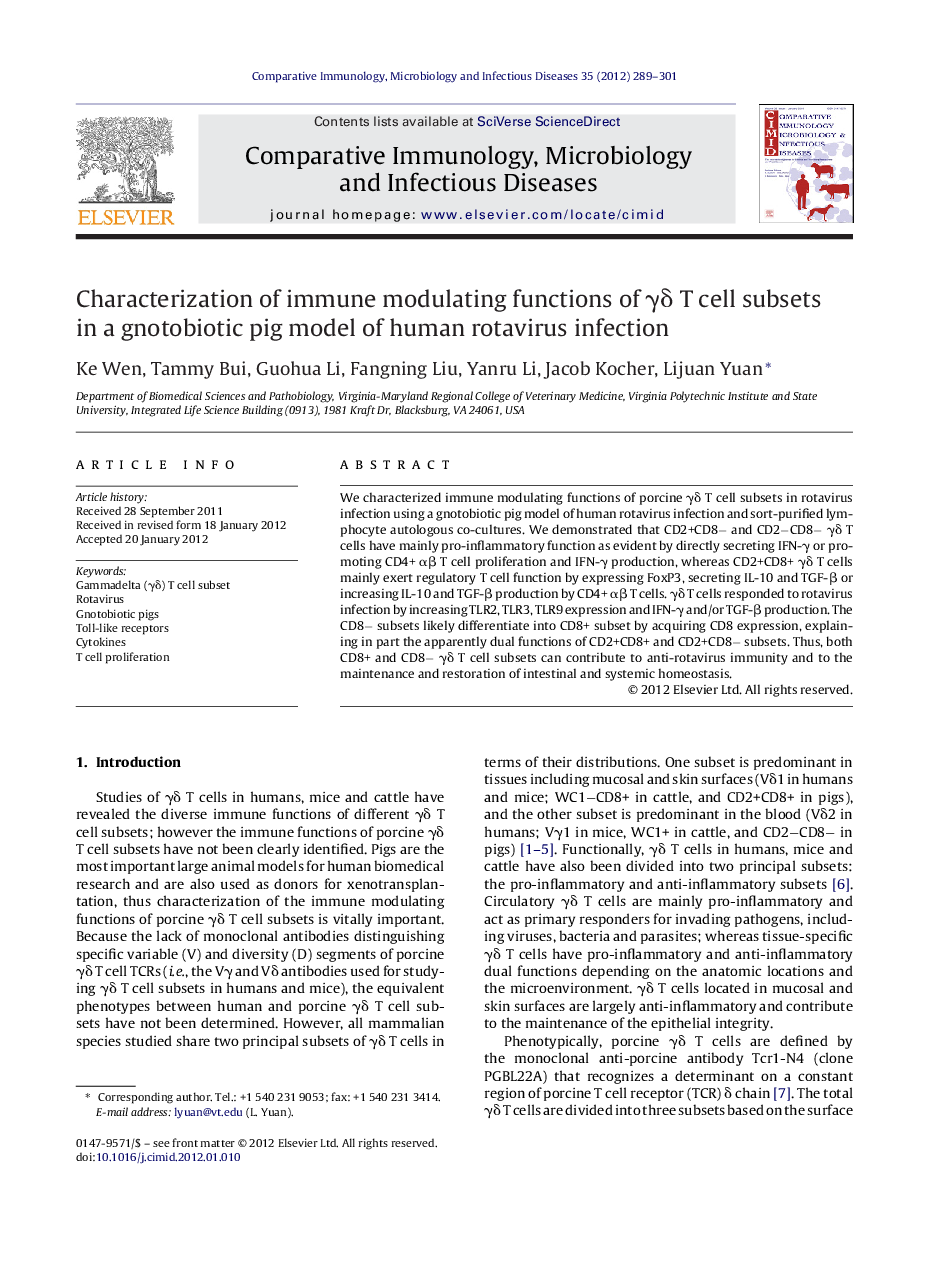| Article ID | Journal | Published Year | Pages | File Type |
|---|---|---|---|---|
| 2428259 | Comparative Immunology, Microbiology and Infectious Diseases | 2012 | 13 Pages |
We characterized immune modulating functions of porcine γδ T cell subsets in rotavirus infection using a gnotobiotic pig model of human rotavirus infection and sort-purified lymphocyte autologous co-cultures. We demonstrated that CD2+CD8− and CD2−CD8− γδ T cells have mainly pro-inflammatory function as evident by directly secreting IFN-γ or promoting CD4+ αβ T cell proliferation and IFN-γ production, whereas CD2+CD8+ γδ T cells mainly exert regulatory T cell function by expressing FoxP3, secreting IL-10 and TGF-β or increasing IL-10 and TGF-β production by CD4+ αβ T cells. γδ T cells responded to rotavirus infection by increasing TLR2, TLR3, TLR9 expression and IFN-γ and/or TGF-β production. The CD8− subsets likely differentiate into CD8+ subset by acquiring CD8 expression, explaining in part the apparently dual functions of CD2+CD8+ and CD2+CD8− subsets. Thus, both CD8+ and CD8− γδ T cell subsets can contribute to anti-rotavirus immunity and to the maintenance and restoration of intestinal and systemic homeostasis.
